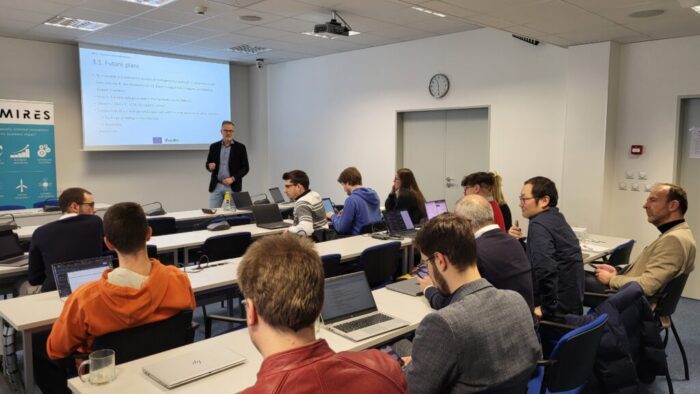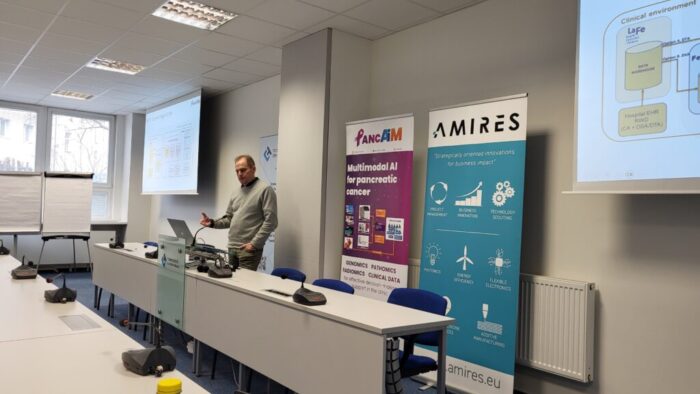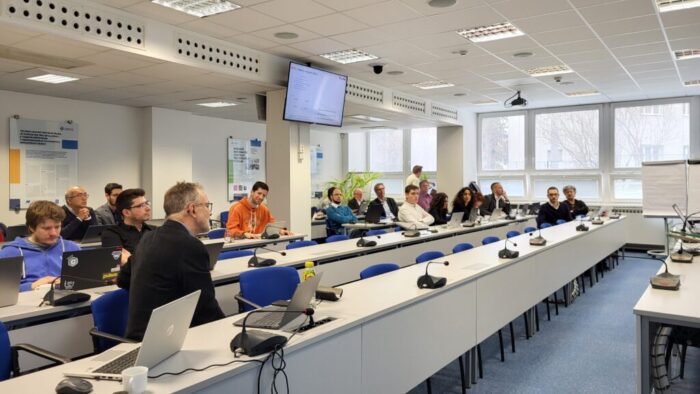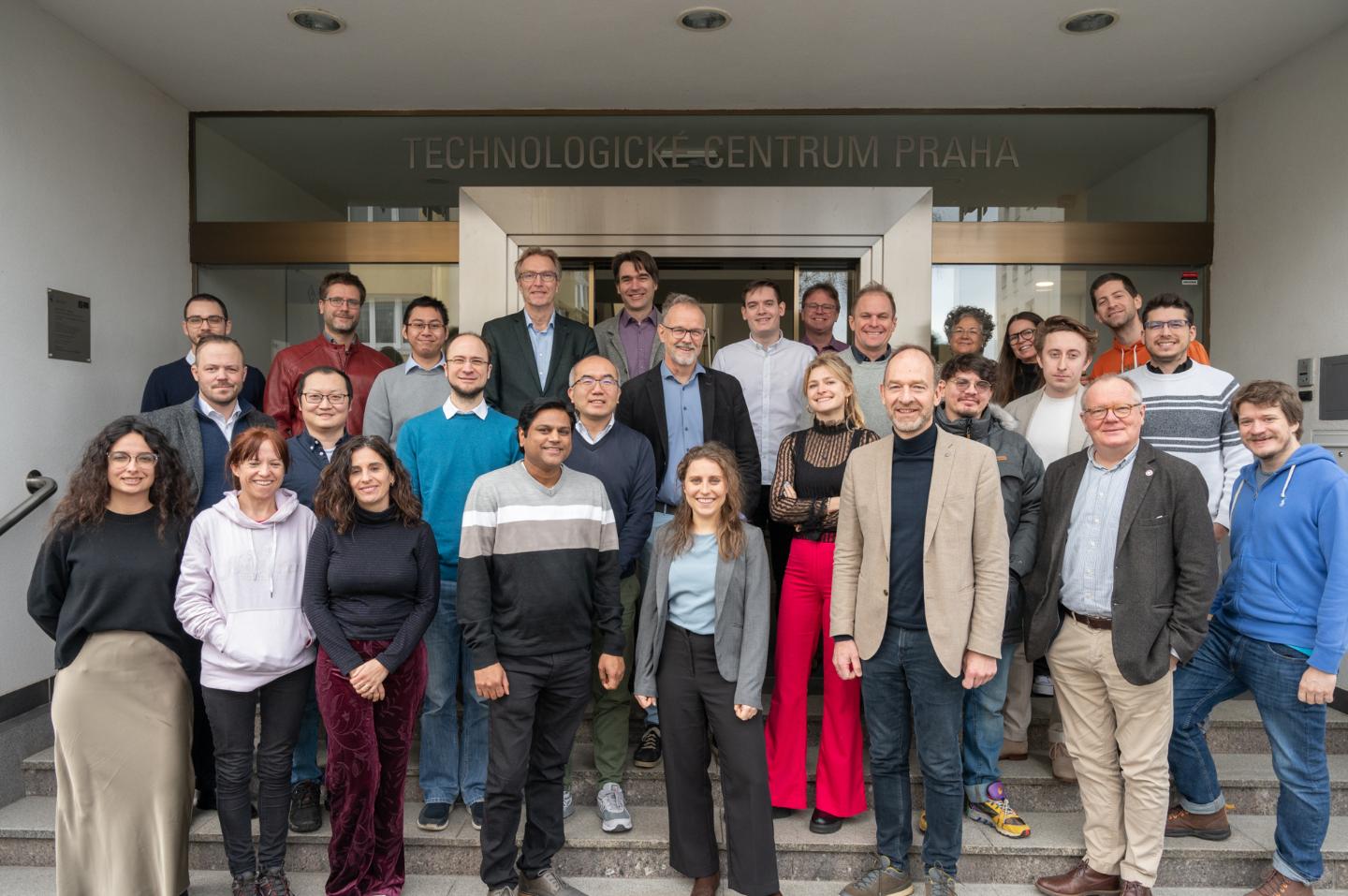AI for Pancreatic cancer – from development towards validation
February 9The PANCAIM M36 Meeting in Prague.
From 7-8 February, AMIRES hosted the PANCAIM M36 meeting here in Prague! Around 30 team members – pancreatic cancer researchers, AI developers, bioinformaticians, clinicians and more, from 9 partner organisations in Europe – joined us for the meeting in the Technology Center of the CAS where all partners presented their respective work packages and activities over the past six months.
PANCAIM is dedicated to advancing multimodal AI integrating genomics, pathomics, and radiomics data for a more comprehensive understanding, diagnosis, and treatment of pancreatic cancer. Through the teamplay platform, we aim to bring our AI to the hospital for clinical validation and ensure brand new possibilities for clinicians to offer personalised treatment recommendations for PDAC patients.
AMIRES is participating in PANCAIM as partner for project management and dissemination and is actively engaged in consortium coordination, taking an active role in organising the meeting and preparing materials, moderating discussions around data sharing and strategic questions in the project such as its sustainability exploitation.



The consortium has been working hard for the last 3 years to achieve project objectives and develop tools to revolutionise pancreatic cancer care for hospitals and patients. Partner presented some exciting updates on the AI models developed in the project, and are seeing some impressive results where AI could reach the same level or even outperform experienced clinicians. Additionally, as more and more data arrives in the multimodal PANCAIM data repository, the consortium is spending more time and effort on the validation and testing of developed algorithms on previously unseen data. Rigorous validation of AI algorithms is considered a top priority of all partners and absolutely crucial before deploying them in real-world clinical settings. Validation of AI models with previously unseen data is crucial to assess the accuracy of developed models to estimate the prognosis of individual patients at diagnosis, to predict treatment response and to evaluate treatment, in order to ensure that developed models achieve the highest levels of effectiveness, precision, and reliability.
The most promising AI algorithms developed in the project, which have demonstrated their capability to predict clinically relevant outcomes, will then be integrated within an established healthcare platform and further validated in an environment that resembles a routine clinical application as closely as possible.
Kristin Aldag, PANCAIM project manager from AMIRES presented the progress in Dissemiation and Communication activities, and briefed the consortium about all current and upcoming matters regarding the project management, administration and coordination.
During a dedicated session, the consortium also discussed the exploitation and sustainability plans to make sure that project result will continue to make an impact even after the end of the funded period. Lastly, with the upcoming project review meeting, the agenda dedicated some time to rehearse presentations, align on priorities, and define the key messages to showcase the progress we’ve achieved through our collaborative efforts. Many active discussions also took place informally over lunch, coffee breaks and delicious Czech dinner.
A big thank you to our hard-working partners for the productive meeting and the good collaboration in this demanding project – we are already looking forward to the next meeting which will take place in September 2024 in Glasgow.
Lots of work remains to be done in the project, but we’re glad to see that PANCAIM is steadily moving towards its objectives of providing unique new digital tools for pancreatic cancer clinicians and patients. For more about the project, please visit https://pancaim.eu/
